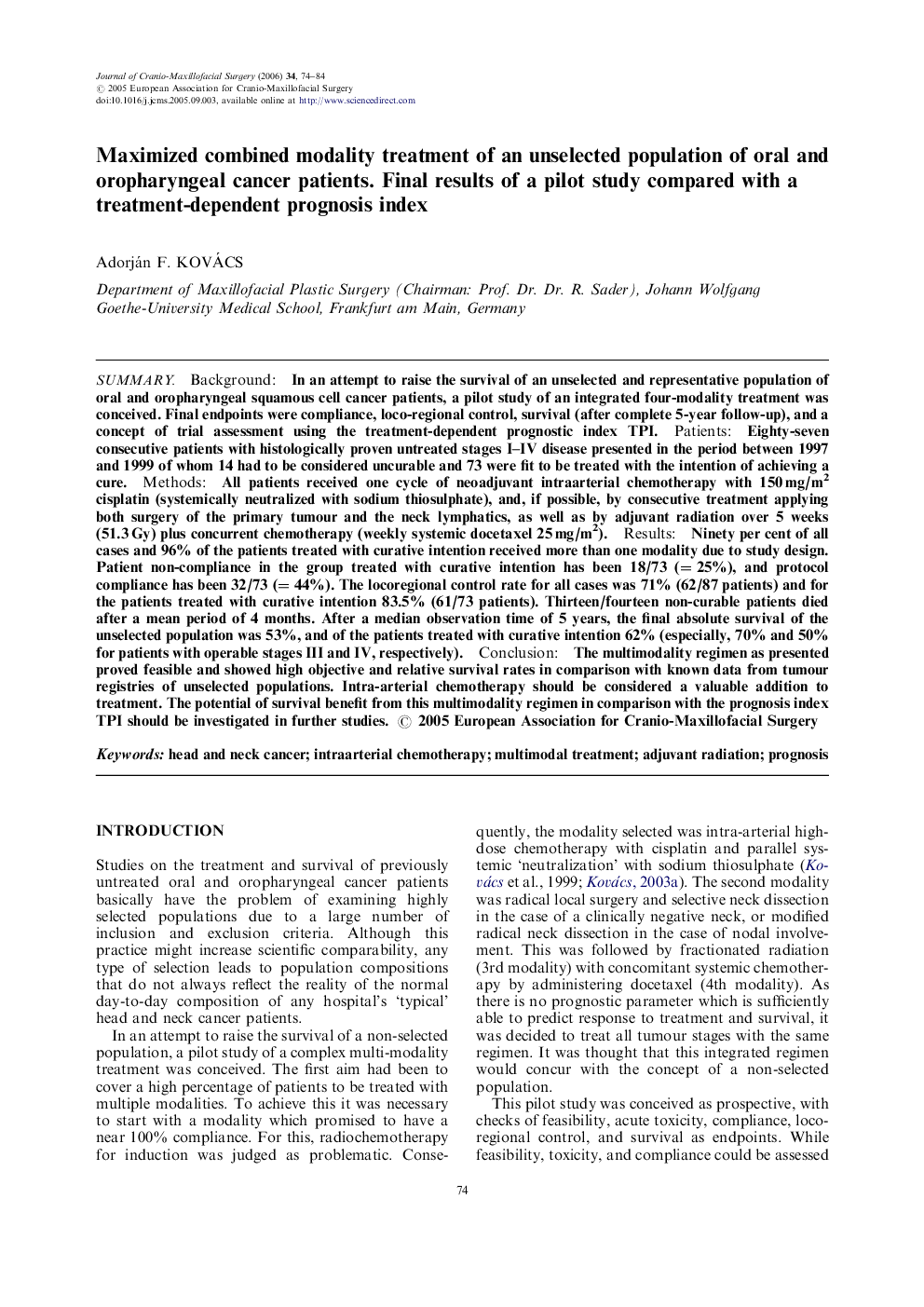| Article ID | Journal | Published Year | Pages | File Type |
|---|---|---|---|---|
| 3144436 | Journal of Cranio-Maxillofacial Surgery | 2006 | 11 Pages |
SummaryBackgroundIn an attempt to raise the survival of an unselected and representative population of oral and oropharyngeal squamous cell cancer patients, a pilot study of an integrated four-modality treatment was conceived. Final endpoints were compliance, loco-regional control, survival (after complete 5-year follow-up), and a concept of trial assessment using the treatment-dependent prognostic index TPI.PatientsEighty-seven consecutive patients with histologically proven untreated stages I–IV disease presented in the period between 1997 and 1999 of whom 14 had to be considered uncurable and 73 were fit to be treated with the intention of achieving a cure.MethodsAll patients received one cycle of neoadjuvant intraarterial chemotherapy with 150 mg/m2 cisplatin (systemically neutralized with sodium thiosulphate), and, if possible, by consecutive treatment applying both surgery of the primary tumour and the neck lymphatics, as well as by adjuvant radiation over 5 weeks (51.3 Gy) plus concurrent chemotherapy (weekly systemic docetaxel 25 mg/m2).ResultsNinety per cent of all cases and 96% of the patients treated with curative intention received more than one modality due to study design. Patient non-compliance in the group treated with curative intention has been 18/73 (=25%=25%), and protocol compliance has been 32/73 (=44%=44%). The locoregional control rate for all cases was 71% (62/87 patients) and for the patients treated with curative intention 83.5% (61/73 patients). Thirteen/fourteen non-curable patients died after a mean period of 4 months. After a median observation time of 5 years, the final absolute survival of the unselected population was 53%, and of the patients treated with curative intention 62% (especially, 70% and 50% for patients with operable stages III and IV, respectively).ConclusionThe multimodality regimen as presented proved feasible and showed high objective and relative survival rates in comparison with known data from tumour registries of unselected populations. Intra-arterial chemotherapy should be considered a valuable addition to treatment. The potential of survival benefit from this multimodality regimen in comparison with the prognosis index TPI should be investigated in further studies.
